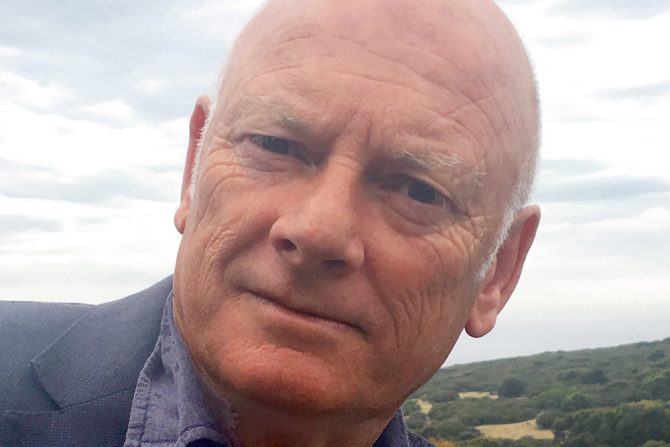At the lovely Piano venue in Christchurch, Lloyd Jones, one of New Zealand's most successful writers (author of the Man Booker Prize nominated Mr Pip), sat down for a fascinating interview with broadcaster John Campbell.
Campbell set up the session with a great introduction. He gave the audience an insight into Jones' latest offering The Cage. Campbell described it as 'a willfully shocking book... confronting and tough'. No surprises here, as Jones is an author who has never shied away from the brutally honest and even harrowing (Mr Pip had me virtually traumatised for a week, and the movie was probably the most distressing piece of cinema I have ever seen).
Jones explained that The Cage was inspired by his own experience of witnessing the arrival of Syrian refugees in Budapest. He described the sight as harrowing with clusters of families squeezed onto cardboard rafts, and women trying to sweep their small spaces as if to preserve their last vestige of dignity. The Cage was written to stress the importance of having a voice and a conscience when faced with tragedy.
Jones never tells readers where 'the strangers' in the novel are, or where they have come from. He is a strong believer that 'readers complete a novel' joining the dots themselves... reading their own circumstances. Jones recalled a book signing for Mr Pip where a young girl asked him if Matilda returned to the island. Jones gave the somewhat disappointing but honest response that he didn't know, 'what do you think?'. After a moment, the girl smiled and said 'Yes'. Campbell concurred that he believed she did too - without a doubt - but not without an admonishment later that Jones 'did write the bloody book'.
Along with eleven novels, Jones has written short stories, and non fiction including an incredibly powerful autobiography A History of Silence. Endearingly, he shared that he walks the places his characters walk - he walked the orphan museum just like Matilda, and 'Matilda loved Dickens because the author did'.
Jones commented that people often describe his books as all being very different from each other, but really they are all similar in their exploration of the theme of identity. Orphans also play a big role in Jones writing because, as he observed, 'my family specialised in them'. Jones' mother was given away at the age of four, while Jones father went through a series of foster homes after the death of his mother. 'One does not look back if not taught to look back' observed Jones.
His history of silence was just that - 'There was no history... my parents never never spoke about it'. Jones also spoke movingly about discovering the story of his wife's ancestors (which involved a tragic drowning) from an old man. The same man witnessed the mass shooting of Jewish women and children during the Second World War - the women instructed to lift their babies above their heads to be killed first, then the mothers killed after. "It's amazing how landscape hides sins" said Jones. Visiting the site later, he would never have known, the world would never have known, had it not been for that man bearing witness:
"f we ignore what is happening we are complicit - you cannot un-know something.
The session ended with audience questions but the closing one in particular seemed such a fitting way to end of the session. One audience member asked Jones if he had faith in humanity, to which he replied:
Definitely - every person in this room will have done something wonderful, and every person will have also done something they are not proud of. I do believe though that we still need a set of core values.
While Jones never seeks to give us answers in his books, or indeed pretend for one moment that he has the answers, his writing always manages to do just this - somehow help us to discover core values and what it means to be human.
Lloyd Jones at WORD Christchurch Festival 2018
Lloyd Jones: In Conversation Friday 31 August 1pm
The Freedom Papers Sunday 2 September 1pm
Edinburgh Festival director Nick Barley speaks to three of the international writers from The Freedom Papers collection – Yaba Badoe, Lloyd Jones and Juno Dawson – about what freedom means to them.
- Find works by Lloyd Jones in our collection
- Our Quick Questions with Lloyd Jones
- Follow our coverage of WORD Christchurch Festival 2018




Add a comment to: Orphans, Immigrants, and Identity – Lloyd Jones: WORD Christchurch Festival 2018